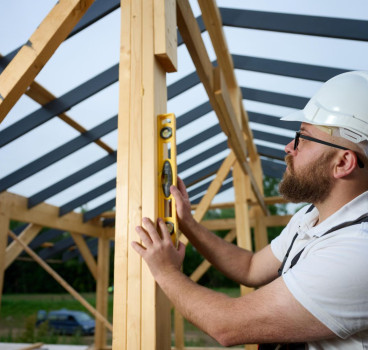How construction is shaping intelligent urban environments
The concept of smart cities has gained significant traction in recent years, as urban planners and policymakers strive to create more sustainable, efficient, and liveable urban environments. At the heart of this transformation lies the crucial role of construction, which plays a pivotal role in developing the infrastructure, buildings, and technologies that underpin smart city initiatives writes John Ridgeway.
Smart cities are characterised by a robust and interconnected infrastructure that supports seamless connectivity, data exchange, and efficient resource management. Construction plays a key role in building this foundation, encompassing everything from energy-efficient transportation systems to intelligent lighting networks and data-driven traffic management systems.
Smart transportation systems are a cornerstone of intelligent urban environments. Construction projects that incorporate smart traffic lights, sensors, and real-time traffic data can optimise traffic flow, reduce congestion, and improve public transport efficiency. For instance, the City of Copenhagen has implemented a smart traffic system that utilises sensors and traffic data to optimise traffic signals, resulting in a 20% reduction in travel time and a 12% decrease in carbon emissions.
Intelligent lighting systems are another essential component of smart cities, harnessing smart technology to optimise energy consumption and enhance safety. Construction projects that incorporate LED lighting with motion sensors and ambient light sensors can reduce energy consumption by up to 80% while ensuring adequate lighting levels. For example, the City of Barcelona has implemented a smart lighting system that automatically adjusts light intensity based on occupancy and ambient light levels, saving energy and improving public safety.
Buildings play a significant role in shaping the liveability and sustainability of smart cities. Construction projects that incorporate smart building technologies can enhance energy efficiency, optimise resource consumption, and provide residents with a more personalised and comfortable living experience.
Smart buildings leverage sensors, data analytics, and automation to optimise energy consumption, reducing reliance on fossil fuels and promoting a more sustainable urban environment. Construction projects that incorporate smart thermostats, smart lighting systems, and building automation systems can achieve significant energy savings, lowering operating costs and reducing carbon emissions.
Moreover, smart buildings can provide residents with a personalised and connected living experience. Construction projects that incorporate smart home technologies, such as voice assistants, remote control systems, and integrated security systems, can also enhance convenience, safety, and comfort for residents.
Smart public utilities play a critical role in ensuring the efficient and sustainable operation of essential services in smart cities. Construction projects that incorporate smart metering systems, predictive maintenance technologies, and integrated resource management platforms can optimise resource utilisation, reduce waste, and enhance service delivery.
Smart metering systems provide real-time data on energy consumption, water usage, and other resource consumption patterns, enabling utilities to identify and address inefficiencies. Construction projects that incorporate smart metering systems can also empower utilities to optimise their resource allocation, reduce peak demand, and implement targeted conservation programmes.
Predictive maintenance technologies utilise data analytics and machine learning to anticipate equipment failures, allowing for proactive maintenance and reducing the risk of unplanned downtime. Construction projects that incorporate predictive maintenance technologies can minimise disruptions to critical infrastructure, ensuring continuous service delivery, thus reducing the need for emergency repairs.
Integrated resource management platforms bring together data from various sources, such as smart meters, weather sensors, and traffic data, to provide a holistic view of resource consumption and enable informed decision-making. Construction projects that incorporate integrated resource management platforms can optimise energy and resource allocation across the city, reducing overall consumption and enhancing efficiency.
Numerous cities around the world are actively embracing smart city initiatives, demonstrating the transformative power of construction in shaping intelligent urban environments. Here are a few more examples of how smart city projects are enhancing liveability and sustainability in different cities:
New York City (pictured) is leveraging smart technology to improve transportation, public safety, and environmental management. Construction projects that incorporate smart parking systems, intelligent traffic monitoring, and data-driven urban planning are contributing to the city's efforts to become more efficient, liveable, and sustainable.
Singapore is also renowned for its smart city initiatives, which aim to create a future-ready, sustainable, and connected city. Construction projects that incorporate smart building technologies, smart healthcare solutions and intelligent urban planning are shaping Singapore's smart city landscape.
So, we can see that the construction industry is playing a pivotal role in shaping the future of smart cities, providing the infrastructure, buildings, and technologies that support intelligent urban environments. As smart city initiatives continue to gain momentum, the construction industry will need to adapt and innovate to meet the demands of these complex and interconnected urban ecosystems. This will require a focus on sustainable and efficient construction practices, as well as a willingness to embrace emerging technologies.
As the concept of smart cities evolves, so too will the role of construction. This is likely to result in the integration of Building Information Modelling (BIM), which will play an increasingly important role in smart city construction, allowing for the seamless integration of building systems, infrastructure, and public utilities.
Smart city construction will also involve the deployment of a vast network of sensors to collect data on everything from energy consumption to traffic patterns. This data will be analysed to optimise resource utilisation, improve services, and predict potential problems.
Prefabrication and modular construction techniques are likely to become more common, as they can reduce construction time, improve quality control, and minimise waste. AI and robotics will also be used to automate tasks, improve safety, and optimize construction processes.
There will be a greater emphasis on collaboration among construction companies, technology providers and city authorities to share knowledge and develop innovative solutions. Smart city construction will also focus on using sustainable materials, reducing waste, and designing buildings and infrastructure to be more resilient to natural disasters and extreme weather events.
It is the future – and construction is ready to do its part.
Additional Blogs

Construction site safety - is zero tolerance realistic?
Walk onto almost any construction site in the country and you will see it printed in bold letters across hoardings and induction slides: ZERO TOLERANCE. It sounds decisive, reassuring and strong. The...
Read moreIs timber construction really greener - or just trendy?
Over the past decade, timber has enjoyed something close to a renaissance. Architects talk about warmth and biophilic design. Developers highlight carbon storage. Contractors discuss speed of...
Read more

4 Must-Follow Health and Safety Habits for the Modern Jobsite
The risks in modern jobsites are constant. Falls, chemical exposure and heat illnesses continue to injure workers across construction and related industries each year. The best way to reduce those...
Read more